
As renewable energy adoption grows worldwide, the debate between gel batteries and lithium batteries has become more important than ever. Homeowners, businesses, and energy enthusiasts are all searching for reliable, long-lasting, and affordable battery solutions to power their systems.
At Namkoo Power, we’ve spent years developing solar battery solutions designed to meet diverse energy needs — from off-grid homes to industrial storage systems. But the big question remains: Is a gel battery better than lithium in 2025? Let’s explore the science, performance, and costs behind both technologies.
A gel battery is a type of sealed lead-acid battery that uses a gelified electrolyte instead of liquid acid. The thickened silica gel makes the battery spill-proof and resistant to vibration. This design provides:
• Enhanced durability for harsh environments
• Low maintenance operation
• Improved safety due to leak-free performance
Because of their reliability and stable discharge characteristics, Namkoo Power’s gel batteries are widely used in solar storage systems, boats, and off-grid installations.
In gel batteries, the reaction between lead dioxide (PbO₂) and sulfuric acid (H₂SO₄) occurs within the gel medium. This stable structure minimizes corrosion and electrolyte evaporation, offering consistent power delivery. Namkoo’s research and innovation in deep-cycle gel battery technology help extend battery life while maintaining strong discharge capacity.
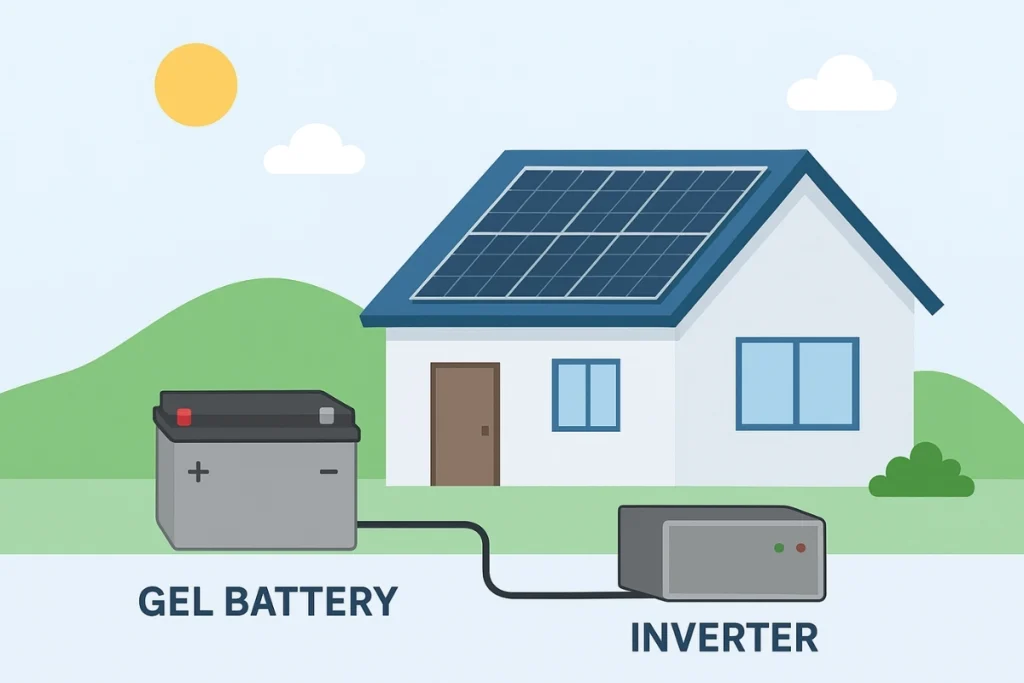
Lithium-ion batteries have become the preferred choice for electric vehicles, home battery systems, and solar storage. They’re lightweight, compact, and can store more energy per kilogram compared to gel batteries.
At Namkoo Power, our lithium solar batteries are engineered using advanced BMS (Battery Management Systems) that ensure optimal safety, high efficiency, and long-term reliability.
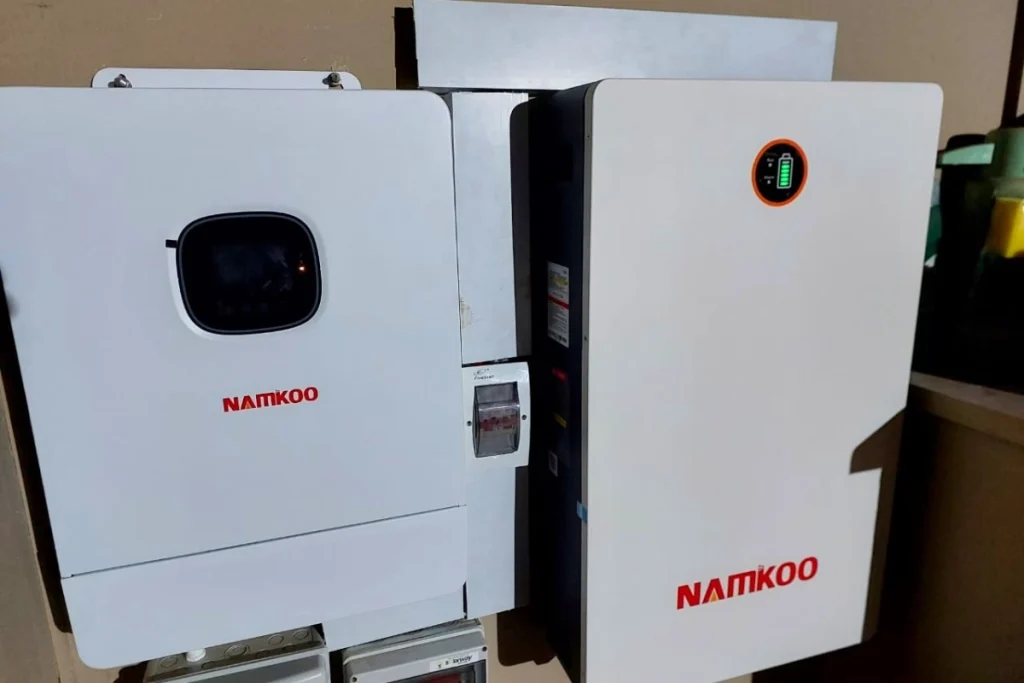
1.Lithium Iron Phosphate (LiFePO₄) – stable, safe, and long-lasting (ideal for home energy systems).
2.Lithium Nickel Manganese Cobalt (NMC) – high energy density, common in EVs and commercial use.
3.Lithium Titanate (LTO) – ultra-fast charging, designed for heavy-duty and industrial use.
Namkoo Power integrates LiFePO₄ cells in most of our home and solar batteries, offering customers a perfect balance of safety and longevity.
| Category | Gel Battery | Lithium Battery |
|---|---|---|
| Energy Density | Moderate | High |
| Lifespan | 5–7 years | 10–15 years |
| Cycle Life | 1,000–1,500 | 3,000–6,000 |
| Maintenance | None | None |
| Safety | Excellent in high temps | Excellent in moderate temps |
| Cost (2025) | $100–$150/kWh | $200–$350/kWh |
• Gel batteries are affordable, safe, and low-maintenance, making them ideal for off-grid solar systems.
• Lithium batteries, while more expensive, deliver superior performance and a longer lifespan, resulting in lower long-term costs.
Gel batteries are trusted for their stability and simplicity. In remote or rural areas where maintenance access is limited, Namkoo Power’s gel solar batteries provide reliable energy without complex upkeep. Their rugged design ensures dependable backup during cloudy days or grid outages.
Namkoo’s solar battery systems combine gel technology with smart inverters and controllers to provide balanced, efficient storage. For users who need moderate capacity and consistent output, our gel batteries remain a cost-effective and eco-friendly option.
In 2025, the global energy storage market continues to evolve. Thanks to advances by companies like Namkoo Power, solar battery prices are gradually decreasing while performance improves.
Gel Battery Average Price: $120 per kWh
Lithium Battery Average Price: $250 per kWh
| Type | Cycle Life | Average Cost per kWh | Cost per Cycle |
|---|---|---|---|
| Gel Battery | 1,200 | $120 | $0.10 |
| Lithium Battery | 6,000 | $250 | $0.06 |
Though lithium batteries cost more initially, their lower cost per cycle and longer lifespan make them a smarter investment over time.
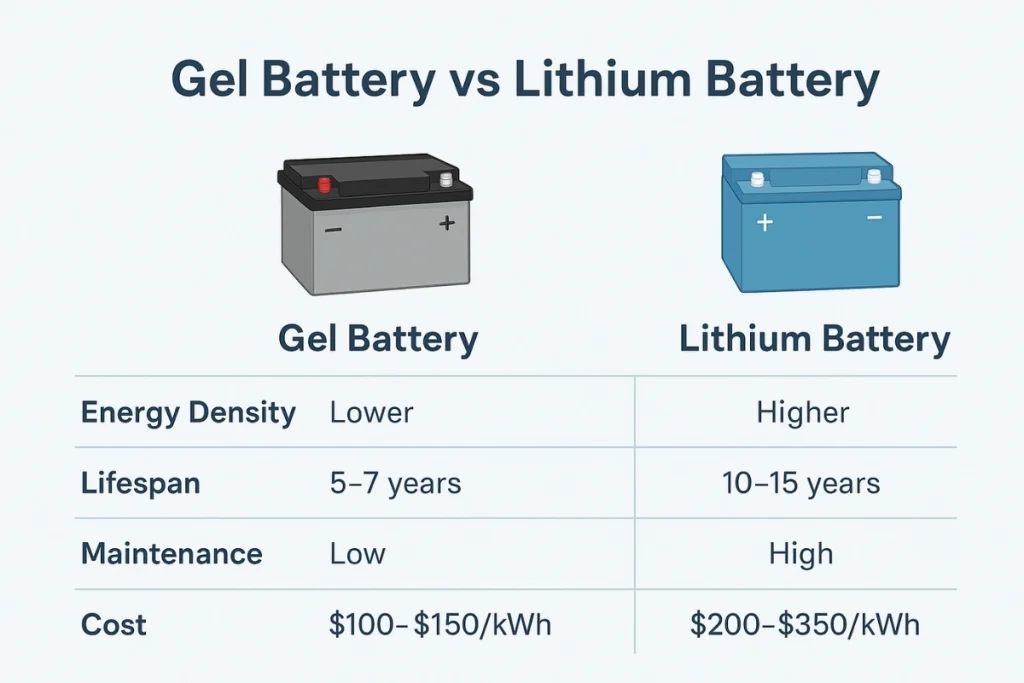
1.Usage Frequency – Frequent use favors lithium; occasional backup use suits gel.
2.Budget – Gel is cost-effective for short-term systems.
3.Environment – Gel performs better in high temperatures and rugged conditions.
4.System Scale – Large, long-term systems benefit from lithium’s extended life and faster charging.
For residential users seeking durability and value, Namkoo LiFePO₄ batteries are the top choice. However, for small-scale solar setups or backup systems, our gel batteries deliver unmatched reliability and affordability.
You can explore our latest lineup of solar battery solutions here:
Namkoo Power Solar Batteries
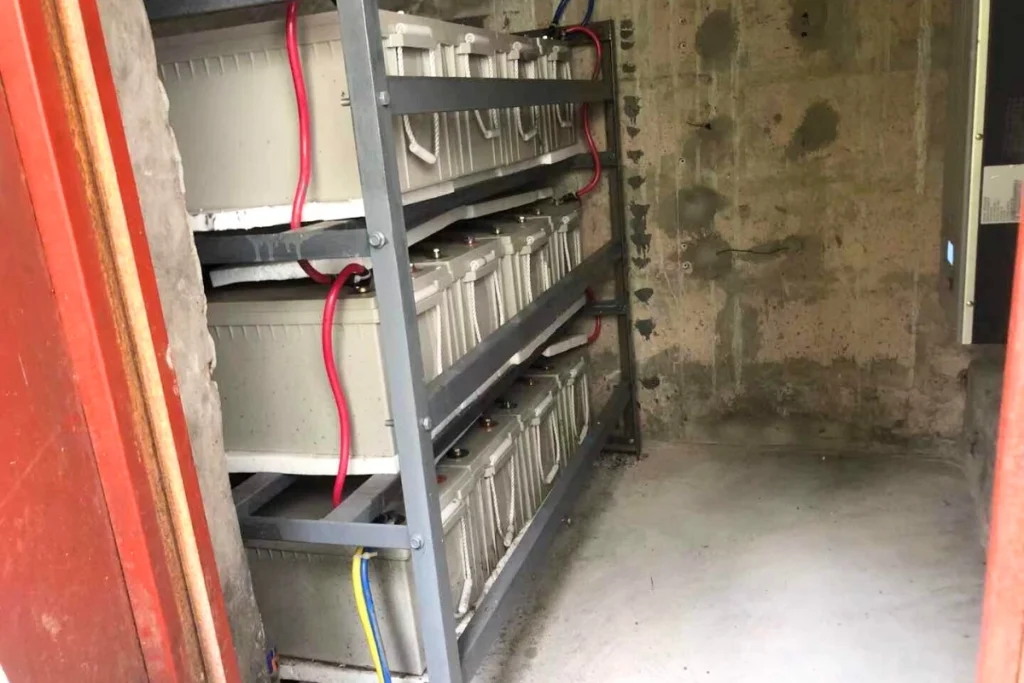
Both are safe, but gel batteries are slightly more tolerant of high temperatures and overcharging.
No, they’re sealed and maintenance-free.
Yes, but ensure your solar inverter and charger support lithium charging protocols.
Lithium batteries typically last 2–3 times longer than gel batteries.
Lithium is better for daily energy cycling, while gel batteries are ideal for occasional or backup use.
Yes! Namkoo Power designs and manufactures gel, AGM, and lithium solar batteries, offering tailored battery solutions for every need.
So, is a gel battery better than lithium? The answer depends on your specific energy needs.
If you value simplicity, safety, and affordability, Namkoo’s gel batteries are a solid choice. But if you prioritize efficiency, performance, and long-term savings, Namkoo’s lithium battery systems are the clear winner.
At Namkoo Power, our mission is to make clean, reliable energy accessible to everyone through high-quality battery solutions. Whether you’re powering a home, business, or off-grid site — we’re here to help you choose the best system for your needs.
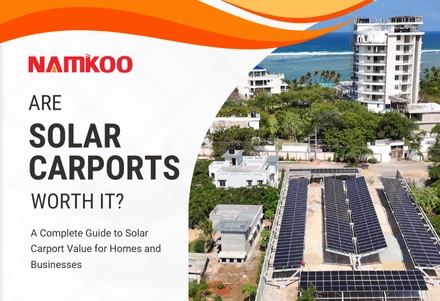
Discover how Namkoo Power’s solar carport systems combine solar panels, storage, and EV charging to deliver fast ROI and clean energy for homes and businesses.


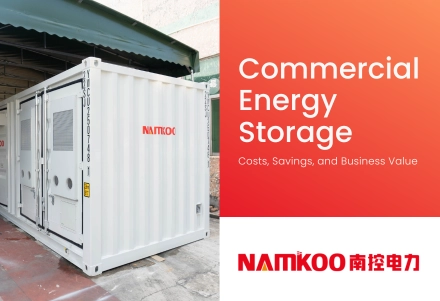
In today’s fast-moving commercial environment, energy efficiency and cost control are no longer optional. Rising electricity prices, grid instability, and sustainability targets are pushing businesses to rethink how they use and manage power. Commercial energy storage systems have become a proven solution. By storing electricity and releasing it when needed most, these systems help businesses […]


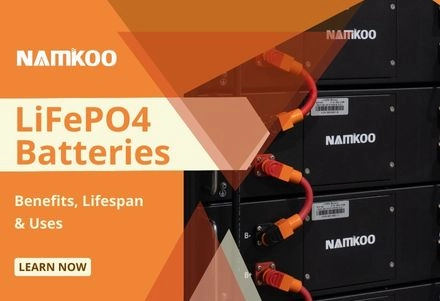
Discover LiFePO4 batteries with Namkoo. Learn about lifepo4 battery life, key benefits, and the advantages of battery energy storage system.



No.26-2,1st Floor, Kuiqi Road West Extension, Nanzhuang Town,Chancheng District,Foshan City,Guangdong Province, China (528000)
Contact Number: +86 18826309307
Email: [email protected]